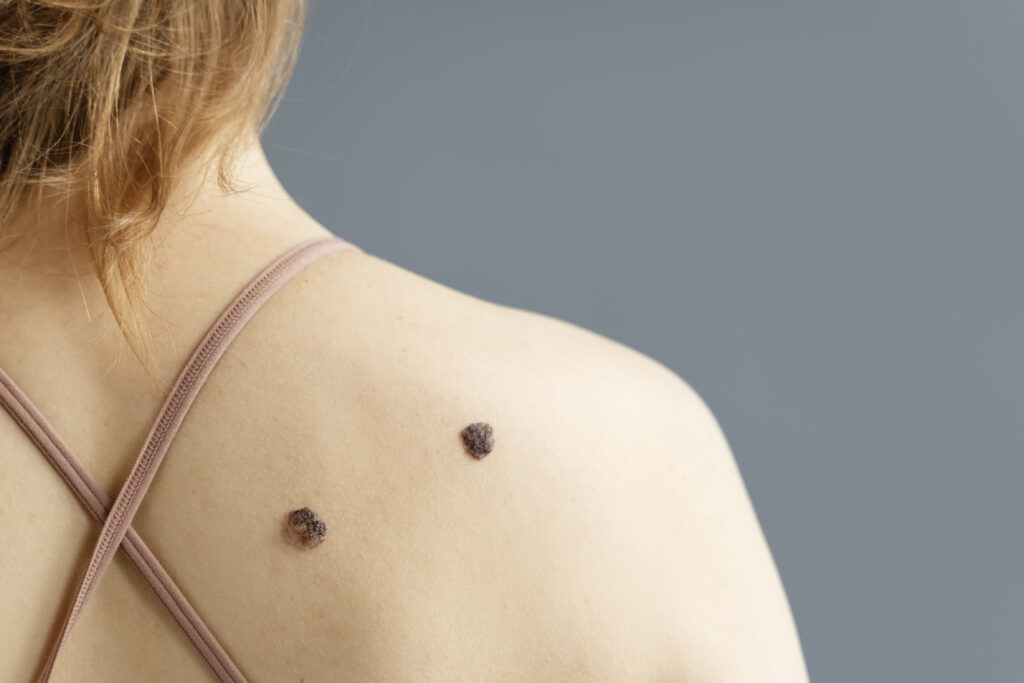
Skin cancer is the most common kind of cancer among Americans. There are two broad categories of skin cancer, including:
Nonmelanoma Skin Cancers
Nonmelanoma skin cancers include two types of cancer that develop in the top layer of skin, basal cell carcinomas,, and squamous cell carcinomas. 80% of skin cancers are basal cell carcinomas, and most of the others are squamous cell carcinomas.
Of these two nonmelanoma skin cancers, squamous cell carcinomas are more likely to move into other layers of skin, but both generally grow very slowly. And, with early detection, the cure rate is very high.
Melanoma skin cancers
Melanoma is skin cancer that begins within the cells that produce pigment to give your skin color. It’s quite rare but is very serious because melanomas are aggressive.
Melanoma can spread rapidly to other parts of your body if not diagnosed and treated early. It can be fatal if untreated, but early treatment offers a better than 99% survival rate if treated in the localized stages.
All types of skin cancer require medical attention, so it’s important to watch for possible signs of cancer and reach out to the Institute of Dermatology & Oculoplastic Surgery if they appear.
The team also recommends annual skin cancer screenings in the office and regular self-skin checks at home, particularly if you have risk factors like being fair-skinned or having a history of skin cancer.
The team checks for problems and new developments during your skin cancer screenings, but it’s equally important to monitor your skin at home. About 50% of people with melanoma discover the abnormal growth themselves.
Skin cancer treatment depends on a few factors, including the type of cancer, growth size, location, and risk of spreading. The most common approach is in-office dermatologic surgery to remove the growth and a small amount of surrounding tissue. In some cases, you may need radiation, chemotherapy, or both to fully treat the cancer and prevent recurrence.
For skin cancer care from a dermatological expert, call the Institute of Dermatology & Oculoplastic Surgery or click on the provided scheduling tool today.